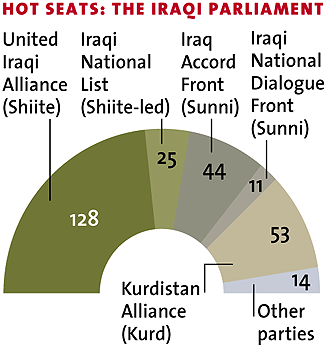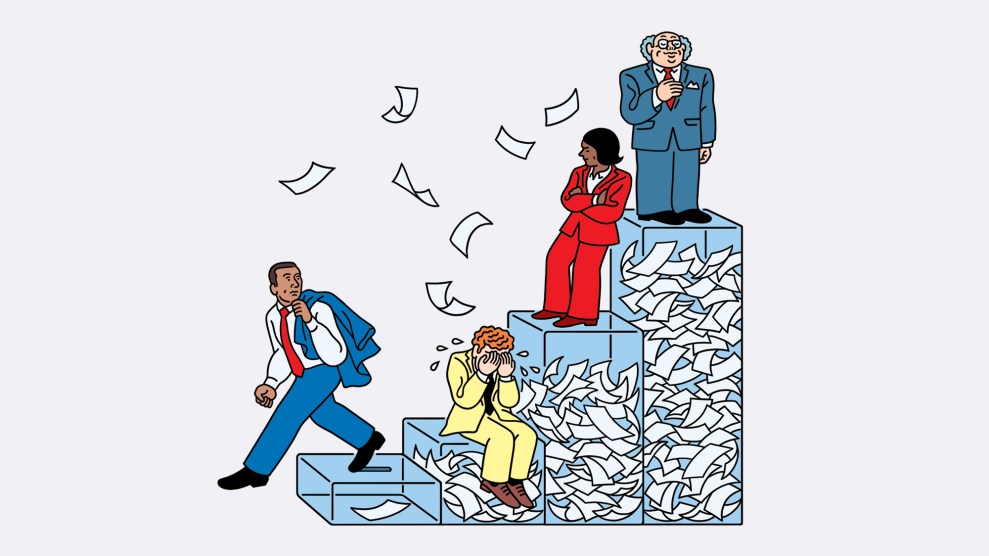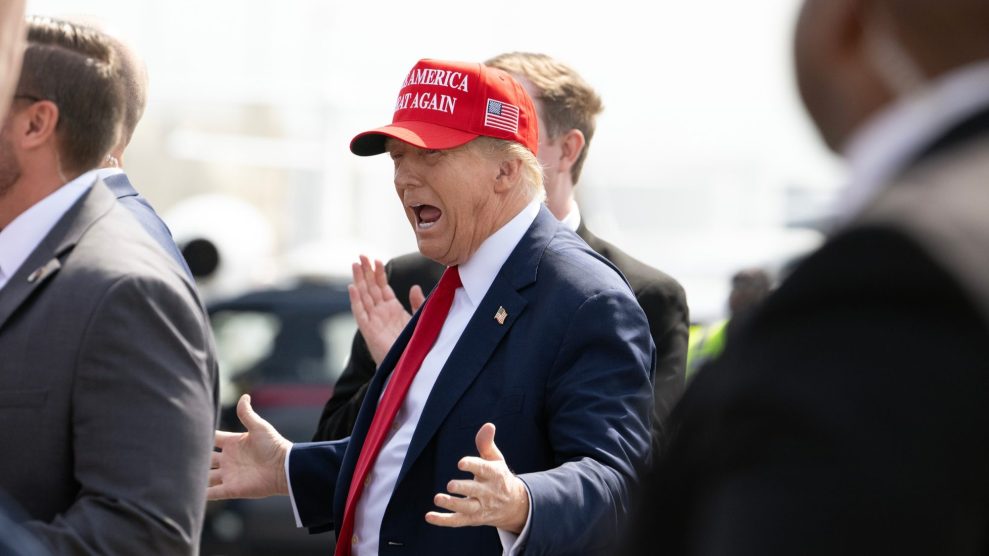|
Supreme Council for the Islamic Revolution in Iraq. sciri and its armed
wing, the Badr Brigade, were founded as a fundamentalist Shiite party
in 1982, under the tutelage of Ayatollah Khomeini’s Revolutionary Guard;
they have been supported by Iran ever since.
Party leader Abdel Aziz al-Hakim, a cleric and former commander of the
Badr Brigade who favors autonomy for the Shiite south, was invited to
the White House last year. sciri is blamed for torture and assassinations,
and its members have infiltrated the Iraqi army and police.
Mahdi Army. A cluster of militias led by the controversial and
charismatic (in a grim-faced sort of way) thirtysomething cleric Muqtada
al-Sadr, scion of the Sadr family that helped found Dawa. Its tens of
thousands of armed men are only loosely under Sadr’s control. Like sciri,
the Mahdi Army has spawned death squads, including a possibly rogue unit
in Baghdad led by Abu Deraa, “the Zarqawi of the Shiites.” Sadr, who also
has ties to Iran, is more of an Iraqi nationalist than other Iran-allied
Shiites.
Iraqi National List. Though led by a Shiite–ex-Baathist and former
cia and mi6 asset Ayad Allawi, who was prime minister until early 2005–the
Iraqi National List is a primarily nonsectarian coalition.
It was created as an inclusive alternative to the fundamentalist Shiite
parties and includes the party of top Sunni tribal leader (and former
Iraqi VP) Ghazi al-Yawer.

Sunnis
Iraq Accord Front. Led by Adnan al-Dulaimi, scion of the largest
Sunni tribe in Anbar province, the most religion-oriented of the Sunni
coalitions includes the Iraqi Islamic Party, which is linked to the Muslim
Brotherhood, a secret society founded in Cairo in 1928. Because the Islamic
Party participated in various transitional governments, the coalition
is now seen by many Sunnis as too close to the United States; in the late
2005 elections, which many Sunnis boycotted, the Iraq Accord Front became
Parliament’s largest Sunni bloc.
Iraqi National Dialogue Front. Led by Saleh al-Mutlaq, a former
Baath party member said to be connected to the insurgency, this bloc has
11 seats in Parliament.
Association of Muslim Scholars.This coalition of clerics straddles
the gap between the Sunni establishment and the insurgency.
Its leader, Harith al-Dhari, is more nationalist than Islamist; his son
has called the group “the political arm of the resistance fighting to
evict American forces from Iraq.” The Iraqi government has a warrant out
for Dhari’s arrest.
The Insurgency. A mostly Sunni “network of networks” linking disparate
interests such as former military and intelligence officers, Baath party
officials, tribal groups, clergymen, nationalists, and Islamists, the
insurgency today has tens of thousands of men under arms. A key underground
leader is Izzat Ibrahim al-Douri, a top official under Saddam.
Al Qaeda in Iraq. Founded by the late Abu Musab al-Zarqawi, Al
Qaeda makes up a small percentage of the insurgency, but its actions are
responsible for a disproportionate number of civilian killings. Its leadership
is opaque, and its relationship, if any, to Osama bin Laden is unclear.
Its rapport with the rest of the insurgency is strained at best.
Kurds
Kurdistan Democratic Party.The largest and most powerful Kurdish
party. Founded in 1946 by a wily warlord, Mulla Mustafa Barzani, the kdp
and its pesh merga (“facing death”) militia remain a family affair. Its
founder’s son, Massoud Barzani, is the president of the Kurdish government
in northern Iraq, and lots of other Barzanis help run the kdp today.
Patriotic Union of Kurdistan. The kdp’s younger sibling was founded
by current Iraqi president Jalal Talabani in 1975, after the collapse
of a kdp-sponsored uprising supported by the cia, the Mossad, and the
Shah of Iran. The puk has gotten support from Syria and Iran; in the ’90s
it was embroiled in a civil war against the kdp. An alliance between the
two parties has 53 seats in Parliament; both want independence for the
Kurds.
|

















